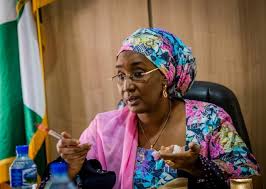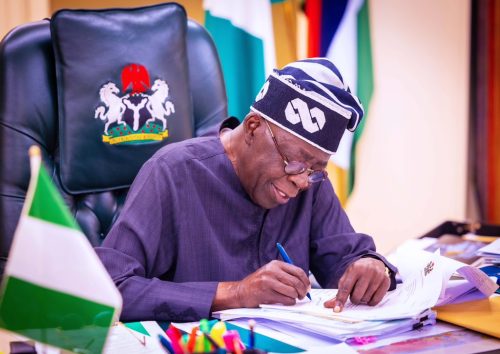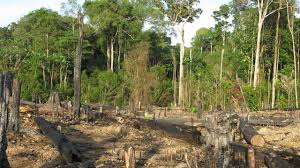₦523m school feeding: World Food Programme ‘silent’ on minister’s claims

Despite a claim by the Minister of Humanitarian Affairs Sadiya Umar-Farouq that her office partnered with the World Food Programme (WFP) of the United Nations on the feeding school children during the lockdown, details of the partnership appear unverifiable.
At a recent briefing by the Presidential Taskforce on COVID-19, the minister had disclosed that the federal government expended about ₦523 million on feeding school children during the period.
She said: “To ensure transparency in the process, we partnered with the World Food Programme (WFP) as technical partners.”
The minister explained further: “At the rate of ₦4,200 per family, and with 124,589 households impacted, a sum of ₦523,273,800 was spent on the programme.
“The ministry, in obeying the presidential directive, went into consultations with state governments through the state governors’ forum, following which it was resolved that take-home rations remained the most viable option for feeding children during the lockdown.
READ ALSO: Manufacturers yet to access CBN’s ₦1trn intervention loan
“So, it was a joint resolution of the ministry and the state governments to give out take-home rations. The stakeholders also resolved that we would start with the FCT, Lagos and Ogun states as pilot cases.”
According to her, the implementation was done in line with the March 29 presidential directive, and each family was assumed to have three children. Umar-Farouq stated that the school feeding programme was modified, and 124,589 households were impacted at the rate of ₦4,200 per family in collaboration with different statistics body as well as the World Food Programme (WFP).
There was, however, no record of any programme WFP carried out in partnership with the federal government especially with regards to the feeding of school children during the COVID-19 lockdown.
Also, an inquiry by a Daily Times correspondent on the level of collaboration WFP had with the federal government on the initiative has not been replied to four days after it was made. The website of the World Food Programme, meanwhile, provides ample information about the organisation’s activities in the country.
For instance, while explaining some of its operations, it said: “Since May 2015, the World Food Programme has supported national and state emergency agencies and humanitarian partners to assist people displaced by conflict.
“WFP has been transferring operational know-how, providing technical support to strengthen food security data collection, enhancing the emergency response at displaced sites (including through food distribution), and providing safe and reliable air transport services to the humanitarian community.
“In November 2016, with support from UNICEF, WFP launched a joint Rapid Response Mechanism (RRM) to supply food, nutrition and health support to people in hard-to-reach areas in Borno and Yobe states. The RRM includes extensive use of helicopters and the pooling of logistics and telecommunications resources across the humanitarian community.
“WFP has been distributing food and cash assistance (including mobile phone-based transfers) to 1.2 million people monthly in Yobe, Adamawa and Borno, the states hardest hit by the crisis.
“Those receiving assistance included displaced people living in camps or host communities, as well as vulnerable members of host communities and people returning home after months of displacement,” the WFP stated.
By Philip Clement, Abuja










